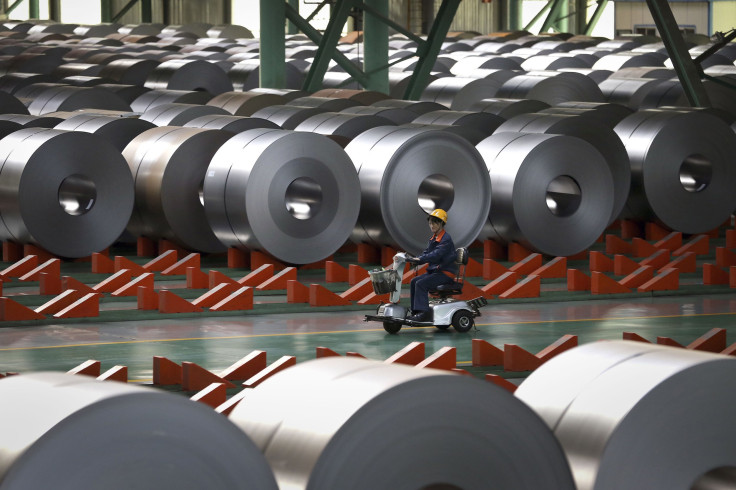China's Overcapacity: New Projects Banned In Steel, Cement And Aluminum

China is finally getting serious about its overcapacity problem under a new plan targeting an array of industries that have seen too many competitors and subsequently heavy losses for too many years.
The new plan issued by the State Council on Tuesday names steel, aluminum, cement, shipbuilding and glassmaking among the affected sectors in which new projects will not be approved and oversized firms will be restructured. State-owned enterprises in these sectors have relied heavily on government subsidies, Reuters reported.
The plan will focus on “establishing and perfecting” market mechanisms and encourage the private sector to play a role in restructuring oversized firms. Previously, the government has encouraged state-owned firms to merge with or buy out smaller competitors, but the strategy has proved unsuccessful, with the resulting conglomerates raising capacity instead of reducing it.
In addition to supply-side reforms, the plan involves efforts to stimulate domestic demand in these sectors and offer tax breaks to encourage firms to relocate plants overseas.
According to the plan, China will also enforce higher environmental, safety, energy and quality standards for industries, which will help to reduce current capacities (the rationale is that plants will produce less if they have to retool these aspects of operation) while also helping the world’s biggest polluter tackle its dire environmental problems. Under the new capacity plan, firms that violate environmental standards will have to pay higher prices for electricity and water.
Overcapacity has been driven in large part by growth-obsessed local governments, which had encouraged capacity expansion via subsidies, access to credit and favorable contracts – a process termed “administrative interference” by Su Bo, China’s vice minister of industry at a conference last month.
Preferential policies in areas such as land allocation had distorted the market and created unfair competition, Su added, according to Reuters. To combat such interferences, Beijing has put in place a series of reforms aimed to reduce the power of local governments in the approval process.
Steel, one of China’s industries with the severest overcapacity problem, has long enjoyed soft loans, massive subsidies and favorable local supply contracts, which resulted in rapid expansion. Su said the central government needs to up the entry requirements to industries like steel that are already oversaturated.
The new plan will also set up mechanisms that would make it easier for firms to exit these industries. Experts have suggested that the lack of an adequate bankruptcy law in the world’s second largest economy has contributed to the overcapacity problem as well.
© Copyright IBTimes 2025. All rights reserved.





















